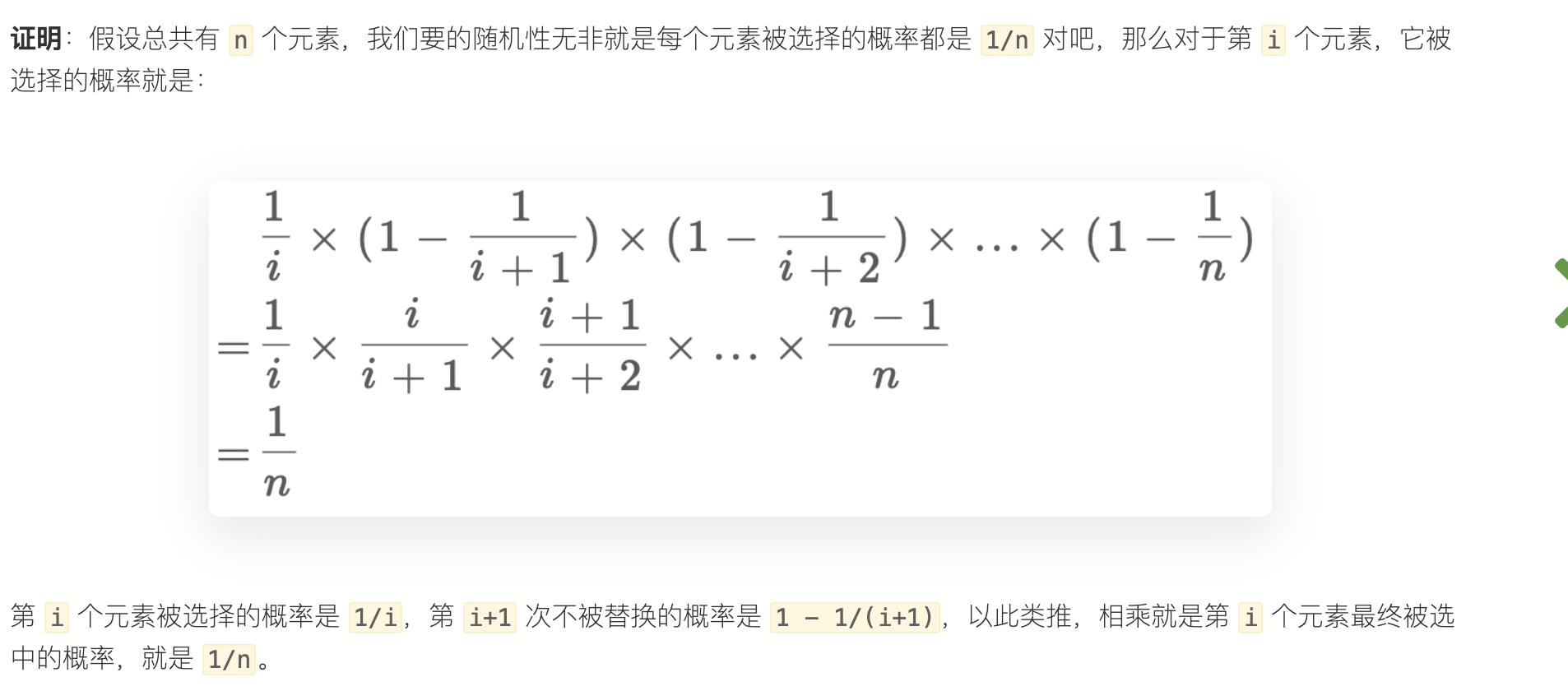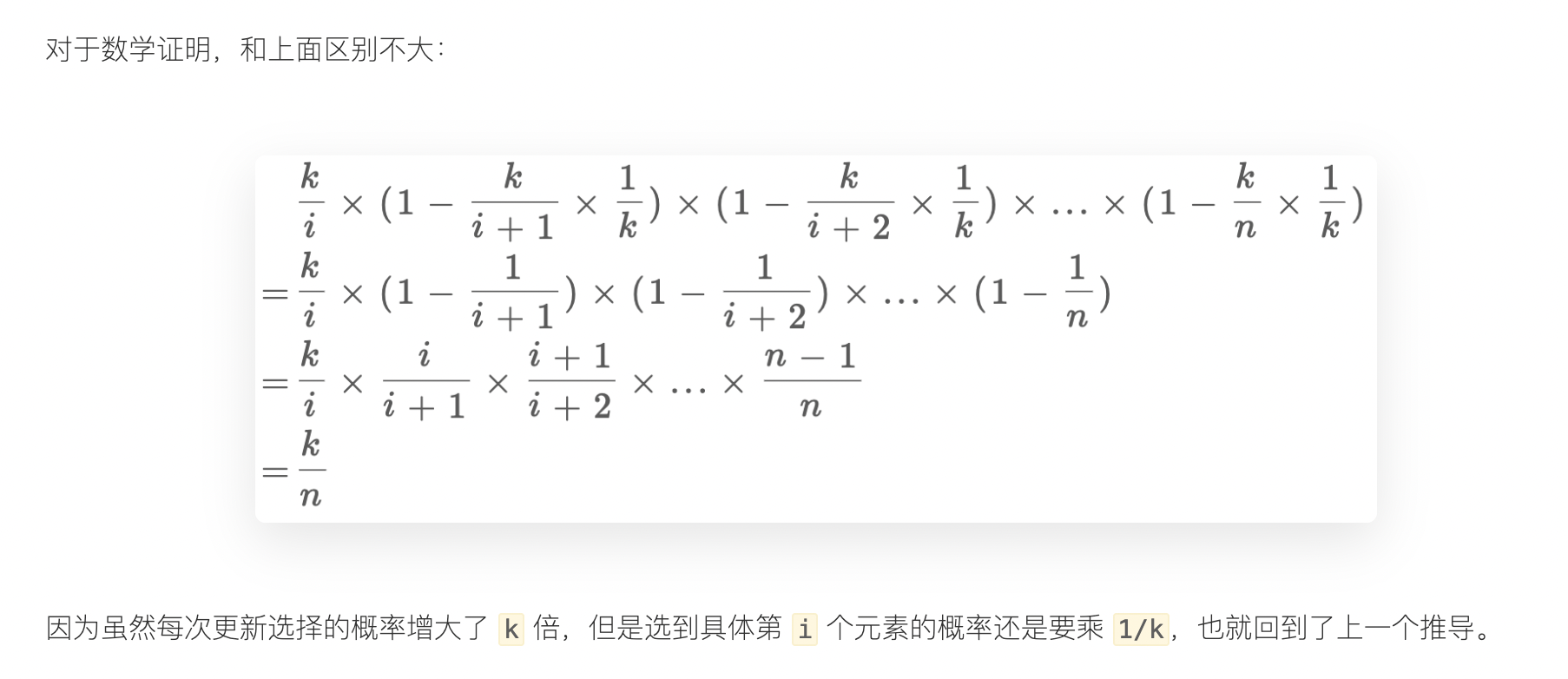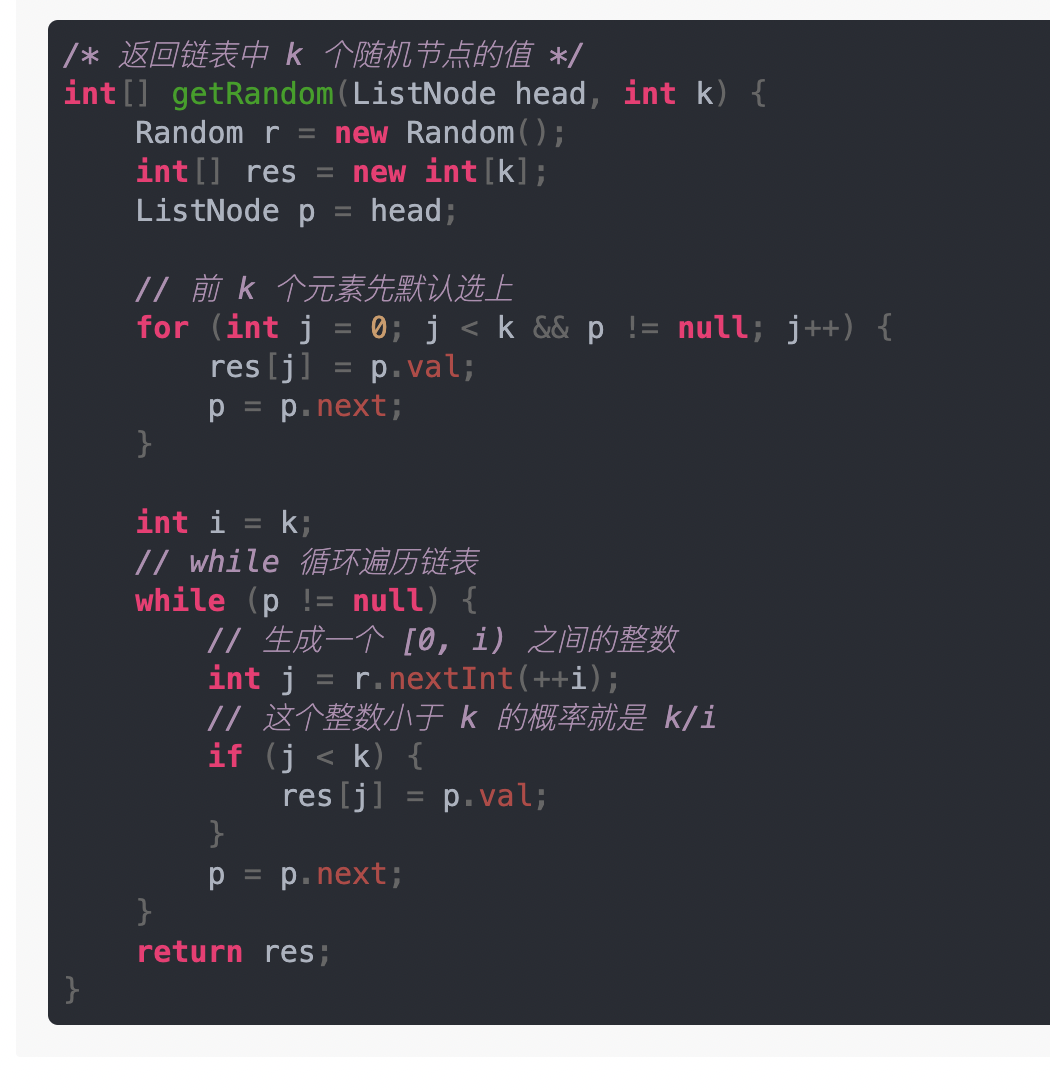给你一个单链表,随机选择链表的一个节点,并返回相应的节点值。每个节点 被选中的概率一样 。
实现 Solution 类:
Solution(ListNode head)使用整数数组初始化对象。int getRandom()从链表中随机选择一个节点并返回该节点的值。链表中所有节点被选中的概率相等。
示例:

输入 ["Solution", "getRandom", "getRandom", "getRandom", "getRandom", "getRandom"] [[[1, 2, 3]], [], [], [], [], []] 输出 [null, 1, 3, 2, 2, 3] 解释 Solution solution = new Solution([1, 2, 3]); solution.getRandom(); // 返回 1 solution.getRandom(); // 返回 3 solution.getRandom(); // 返回 2 solution.getRandom(); // 返回 2 solution.getRandom(); // 返回 3 // getRandom() 方法应随机返回 1、2、3中的一个,每个元素被返回的概率相等。
先说结论,当你遇到第 i 个元素时,应该有 1/i 的概率选择该元素,1 - 1/i 的概率保持原有的选择。看代码容易理解这个思路:



/** * Definition for singly-linked list. * struct ListNode { * int val; * ListNode *next; * ListNode() : val(0), next(nullptr) {} * ListNode(int x) : val(x), next(nullptr) {} * ListNode(int x, ListNode *next) : val(x), next(next) {} * }; */ class Solution { public: ListNode* head; Solution(ListNode* head) { this->head = head; } int getRandom() { int i = 1; int res = 0; for (ListNode* node=head; node!=nullptr;node=node->next) { if (rand()%i==0) { res = node->val; } i++; } return res; } }; /** * Your Solution object will be instantiated and called as such: * Solution* obj = new Solution(head); * int param_1 = obj->getRandom(); */